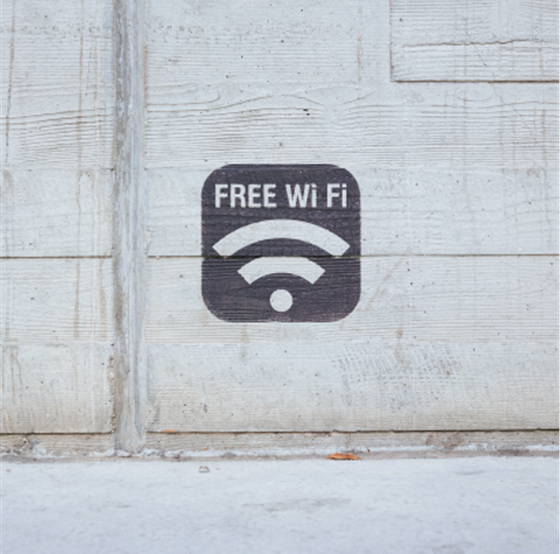Updates from 2020
A lot happened in 2020, however we want to acknowledge important information that insurance agents will find useful in the senior insurance market. Check out important updates from 2020 that you need to know about.
On Friday, October 23rd (a week into the 2021 AEP) our entire office joined a Zoom meeting for an update on the company among other things that you would not find interesting. The meeting started as usual, but during our President’s rousing Friday morning speech he stopped talking…then again, was he frozen…Oh! Everyone is frozen!
Was it me?
Was it my iPad?
Not this time! Everyone’s Zoom meeting crashed.
Apparently at shortly after 9AM there was an internet outage in our area. One might say we were “off the grid.” Now, I know that’s an exaggeration, but I started to think: We’ve been so dependent on the internet, even encouraging agents to communicate with their clients online, invest in an online CRM(link), submit eApplications, etc. …what do agents do if they lose internet access at the office?
While staring at my spinning Zoom call, I thought of two alternatives:
1.) Keep important information on your computer server
2.) Have an alternative internet connection
Let’s dive into the details!
Typically, an existing client calls into the office because they need something. That could be:
- Policy numbers
- More competitive Medicare Supplement options
- Alternative products (Life, Critical Illness, DVH)
- Questions on filing a claim
The backup information you should store on your computer is information that the client might need. I decided that there are 3 main sections that you should look at when storing information on your server:
1.) Client Contact Information
Our Marketing Department has always recommended an online CRM to safely store your client’s information. An alternative is to save your client’s applications and policy numbers to a secure server so if they call in you have all their information from their previous or current carrier application. Regularly exporting a copy of the data in your online CRM is a way to have a “best of both worlds” type solution.
2.) Carrier Contact Information
This is something that can be stored in a CRM as well, but it never hurts to have this information on your desktop saved in an excel sheet. You will want to save important information such as:
- Phone number (Agent Support, Policyholder Support, Underwriting, New Business, etc)
- Fax number (New Business and Underwriting)
- Mailing address (New Business)
Carrier information stored on your computer might not be the fastest to find information, but you will have what you need to submit business or help a client while there’s no internet access.
3.) Carrier Supplies
Most carrier supplies can be downloaded to your computer, with the exception being some Medicare Advantage or Prescription Drug applications that are individually barcoded. While you still have access to your carrier’s websites, we suggest that you download forms to store on your computer or laptop to have right at your fingertips. If you are having trouble downloading forms, feel free to give our Marketing Department a call and we can email you the PDFs you need. Forms that you should always have on hand are:
- Applications
- Rates
- Brochures
- Outline of coverage
- Replacement form
- HIPAA form
Be sure to set a reminder in your calendar to keep your “offline” copies up to date. Many cloud storage apps like Dropbox, and OneDrive have a desktop application that allows you to sync your files to your desktop automatically giving you can always current and offline accessible copy of your stored carrier forms.
If you are the type of agent that needs the internet to submit business, then we suggest that you have an alternative to your internet connection. A couple of ideas that we suggest are:
1.) Switch to Cellular Networks
Typically, if your wired internet connection goes out, your wireless connections are still operating. Switch to a device that uses a cellular network to access the internet like your smart phone. Or use your cell phone to tether your tablet, iPad, or laptop to your cellular service. This will allow you to have internet access thru your data carrier. Keep in mind the internet speed will be slower, and if you have limited data using the internet through your cellular network could increase your monthly bill. Using a cellular network is a good and often quickly accessed alternative if you need to be on the internet for brief amount of time but not for the long hull.
2.) Mobile broadband
Using mobile broadband is like using your cellular network, but instead of tethering through your mobile device, your using cellular data through a separate device that provides a mobile internet connection. This creates what most people call a WIFI “hotspot” allowing you to work from anywhere. The connection is better than running through your mobile device, but the cost of an extra line can be pricey. However, if you are an agent that has a traveling office this might be a good investment for your business since it allows you to access the internet on any of your devices, even those without cellular connections.
3.) Go To Where There’s Free Wifi
If you need WIFI in a pinch and your office is “off the grid,” we suggest you go where there’s free WIFI. College students, millennials, and bloggers do it, and so should you! Drive to the nearest Starbucks, grab a cup of coffee and connect your laptop to the free WIFI. If you are not in the mood for coffee, typically the local library will have free WIFI to help you out, or use a site (or app) like WifiMap which will allow you to search for Free WIFI hotspots near you. If you lost internet in your home office this is great alternative if you have business to submit the same day. One word of caution when using a public and open access network: these networks are not always 100% secure. It’s a best to avoid entering, sharing, or accessing any of your own or your client’s personal information. But these WIFI hotspots are great for downloading forms or looking up rates.
Conclusion
If you are curious to know, our internet connection came back in roughly 90 minutes and our business survived! And, if anything, hopefully you can learn from our internet outage so now you can have a backup plan to keep your business running smoothly.
Have any tips to share about alternative internet access or what you do when you lose internet? Leave a comment below!

